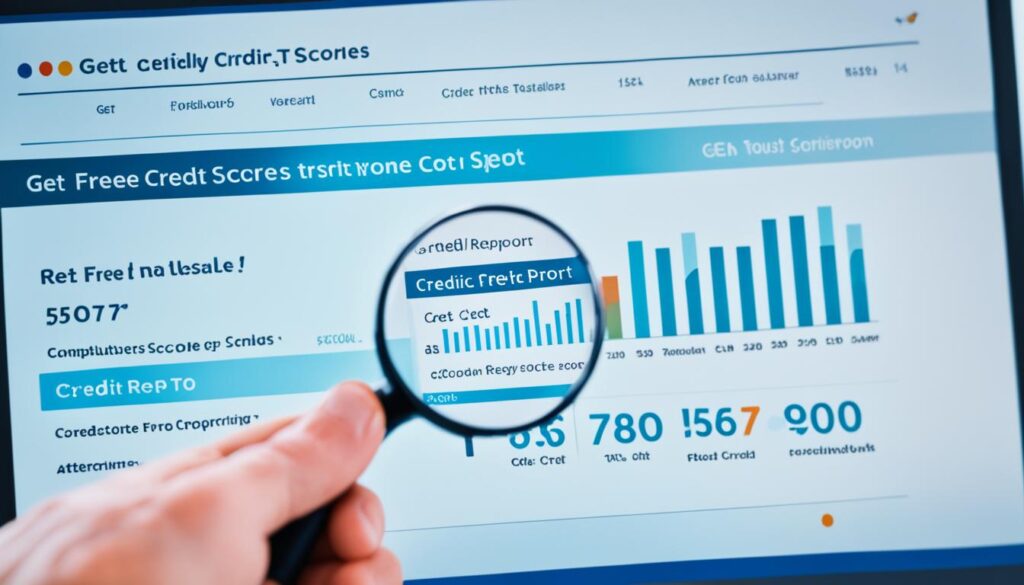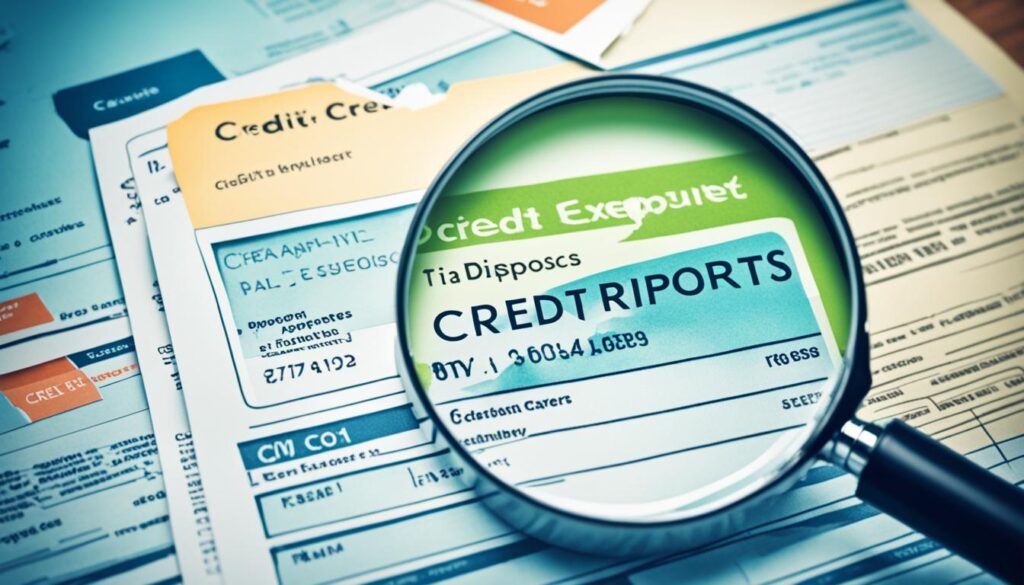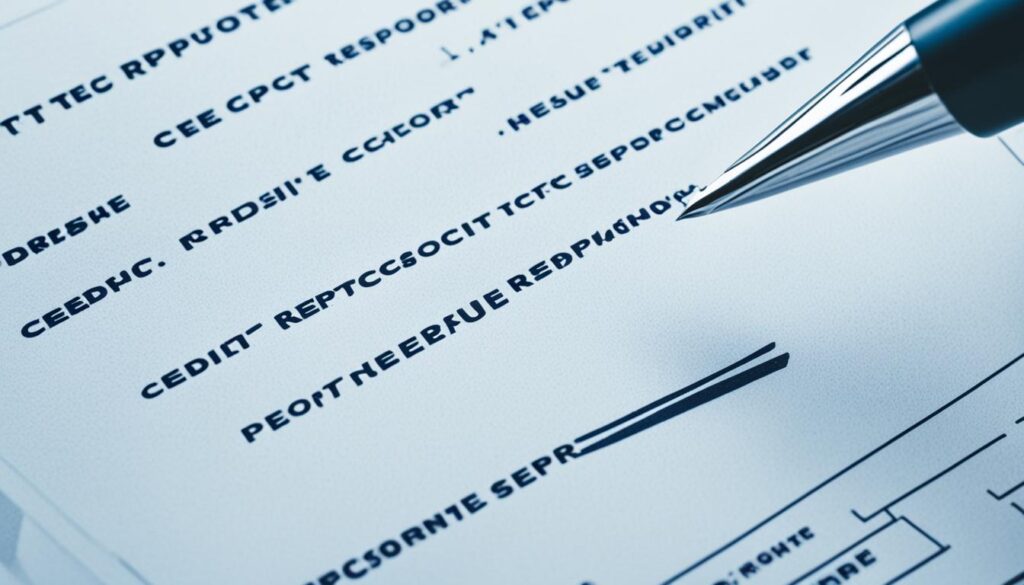Free Credit Dispute Letters That Work Your credit score can significantly impact your financial future. Free credit dispute letters are powerful tools to fix errors. These letters can help improve your credit score legally and correct report mistakes. attorney credit repair letter
This guide will show you how to write effective dispute letters. We’ll also discuss when you might need a dispute credit errors lawyer.
Credit report errors can harm your financial health. They can lower your score, making it harder to get loans. Well-written dispute letters can challenge these errors and boost your credit score.
Sometimes, the process can be tricky. That’s when a dispute credit errors lawyer can help you out.
Key Takeaways
- Free credit dispute letters can help fix credit report errors
- Well-crafted letters can improve your credit score legally
- Credit report errors can harm your financial health
- Dispute letters are a tool to challenge incorrect information
- A dispute credit errors lawyer can help with complex cases
Understanding Credit Disputes and Their Importance
Credit disputes are vital for keeping your financial records accurate. They help protect your financial health and future opportunities.
What is a credit dispute?
A credit dispute challenges wrong info on your credit report. It can fix incorrect account details, outdated data, or fraud.
When you file a dispute, credit bureaus must investigate. They’re required to correct any errors they find.
Why disputing credit errors matters
Fixing errors is key to a healthy credit score. Mistakes can lead to lower scores and higher interest rates.
By addressing inaccuracies, you safeguard your financial reputation. This ensures fair treatment from lenders.
The impact of credit errors on your financial health
Credit errors can cause serious problems. They may result in loan rejections or higher insurance costs.
Errors can even cost you job opportunities. Addressing inaccuracies quickly is crucial to avoid these issues.
| Credit Error Type | Potential Impact | Resolution Method |
|---|---|---|
| Incorrect account status | Lower credit score | File dispute with bureau |
| Identity theft | Fraudulent accounts | Contact credit repair attorney |
| Outdated information | Unfair loan terms | Request information removal |
Knowing about credit disputes helps you keep your credit reports accurate. You can handle disputes yourself or get help.
A credit repair attorney can assist with complex cases. Addressing wrong credit info is essential for financial well-being.
The Legal Framework: Fair Credit Reporting Act (FCRA)
The Fair Credit Reporting Act (FCRA) protects consumer rights in credit reporting. It sets rules for collecting and using consumer credit information.
This law ensures fair practices in credit reporting. It grants consumers important rights and protections.
- Access to free annual credit reports
- The ability to dispute inaccurate information
- Limits on who can view credit reports
- Requirements for prompt error corrections
Understanding these rights helps maintain a healthy credit profile. Consumer reporting agencies play a key role in financial decisions. The FCRA ensures these agencies keep accurate information.
FCRA violations can seriously impact businesses. Penalties may include fines, legal action, and reputation damage.
Common violations include:
- Failing to investigate disputes promptly
- Reporting outdated negative information
- Providing credit reports to unauthorized parties
The FCRA’s protections go beyond credit reports. It covers employment background checks, tenant screening, and insurance underwriting.
This broad scope highlights the act’s importance. It safeguards consumer privacy and financial well-being.
Consumers should regularly review their credit reports. Understanding credit repair basics is crucial. Stay informed to protect your financial future.
Common Types of Credit Report Errors
Credit report errors can severely impact your financial health. Spotting these mistakes is vital for disputing inaccuracies with credit bureaus. Let’s examine the most common credit report errors.
Identity Mistakes
Identity mistakes mix up your personal information with someone else’s. These errors can cause identity theft issues. They may include wrong name spellings, incorrect Social Security numbers, or inaccurate contact details.
- Incorrect name spelling
- Wrong Social Security number
- Inaccurate addresses or phone numbers
Incorrect Account Statuses
Your credit report might show accounts with wrong statuses. These can include open accounts listed as closed or vice versa. Some accounts might be wrongly marked as delinquent.
- Open accounts listed as closed
- Closed accounts appearing as open
- Accounts wrongly marked as delinquent
Balance and Payment History Errors
Mistakes in your balance or payment history can greatly affect your credit score. Look out for incorrect account balances and missed payments you actually made. Duplicate accounts can also inflate your debt.
- Incorrect account balances
- Missed payments that you actually made
- Duplicate accounts inflating your debt
Check your credit report often to catch errors early. If you find any mistakes, start a credit bureaus dispute right away. This will help protect your financial standing.
How to Obtain Your Free Credit Report

Monitoring your credit report is vital for catching errors and boosting your credit score. The best part? You can access your credit report at no cost!
Federal law grants you one free credit report yearly from Equifax, Experian, and TransUnion. Visit AnnualCreditReport.com to get these reports. It’s the only official site for free credit reports.
Here’s how to get your free credit report:
- Go to AnnualCreditReport.com
- Click on “Request your free credit reports”
- Fill out the form with your personal information
- Choose which credit bureau reports you want
- Answer some security questions to verify your identity
- View and save your reports
Regular credit report checks help you spot and dispute errors quickly. This can help you improve your credit score legally.
It’s a key step towards better financial health.
“Your credit report is your financial report card. Check it regularly to ensure it’s telling the right story about you.”
Stay alert and address issues promptly. You’ll be taking a big step towards a brighter financial future.
Crafting an Effective Credit Dispute Letter
A strong credit dispute letter is crucial for fixing inaccurate credit information. Let’s explore how to create an impactful letter for credit bureaus.
Essential Elements of a Dispute Letter
Your letter should clearly state the issue and your request. Include your personal details and the account in question. Explain why you believe there’s an error in your credit report.
Be specific about what information needs correction or removal. This helps credit bureaus understand your concerns better.
Tone and Language Best Practices
Maintain a professional and factual tone in your letter. Avoid emotional language or accusations that might weaken your case.
Focus on presenting the facts concisely. Use simple language to explain your credit dispute clearly.
Supporting Documentation to Include
Back up your claims with solid evidence. This strengthens your case and increases the chances of resolution.
- Copies of credit reports showing the error
- Account statements proving correct information
- Identity verification documents
- Any correspondence related to the dispute
Always send copies of documents, not originals. A well-crafted letter with solid proof boosts your chances of success.
This approach helps resolve inaccurate credit information quickly and effectively. Your effort in preparing a thorough dispute letter will pay off.
Step-by-Step Guide to Writing a Credit Dispute Letter
Challenging credit report errors can be tough. But with the right steps, you can craft an effective dispute letter. Let’s explore how to write a letter that gets results.

First, gather all necessary documents. This includes your credit report and any evidence supporting your claim. Organize these materials before you start writing.
Format your letter professionally. Use a business letter template and include your personal information. Add the credit bureau’s address and the date. Keep your tone clear and concise throughout.
- Identify yourself clearly
- State the purpose of your letter
- Specify the errors in your report
- Request correction or deletion of inaccurate information
- Provide supporting documentation
Be specific when detailing errors. Include account numbers, dates, and amounts. Explain why the information is wrong and how it should be fixed. Smart Disputer reviews show that precision is crucial for successful disputes.
A well-crafted dispute letter is your first line of defense against credit reporting errors.” – Credit Repair Expert
Ask for an investigation and written confirmation of the results. End your letter with a polite but firm request for quick action.
| Do | Don’t |
|---|---|
| Be specific about errors | Use emotional language |
| Include supporting documents | Dispute accurate information |
| Request written confirmation | Send original documents |
| Keep copies of all correspondence | Forget to follow up |
These steps will help you create a strong dispute letter. It will effectively address credit report errors. If you need help, consider consulting a credit repair attorney.
Sample Templates for Free Credit Dispute Letters
Credit report errors can harm your financial health. We’ve created templates to help you address these issues. These letters follow Fair Credit Reporting Act guidelines and challenge common credit report errors.
Our templates are designed to effectively dispute various scenarios. They provide a solid foundation for addressing credit report inaccuracies.
General Dispute Letter Template
A general dispute letter works well for multiple issues. Use this basic structure:
[Your Name]
[Your Address]
[Date][Credit Bureau Name]
[Credit Bureau Address]Re: Dispute of Credit Report Information
Dear Sir/Madam,
I am writing to dispute the following information in my credit report:
[List specific items you’re disputing]Please investigate these matters and correct the disputed information.
Sincerely,
[Your Signature]
[Your Name]
Specific Error Dispute Templates
For specific credit report errors, customize your letter. Here’s a comparison of templates for common errors:
| Error Type | Key Points to Include |
|---|---|
| Identity Mistake | Correct personal information, proof of identity |
| Incorrect Account Status | Account details, correct status, supporting documents |
| Balance Errors | Correct balance, account statements |
Follow-up Letter Templates
Use a follow-up letter if you don’t get a response. Include your previous letter’s date and restate your dispute points.
This approach works well when you disagree with investigation results. It helps keep your case active and progressing.
Stay persistent when addressing Fair Credit Reporting Act violations. These templates offer a strong start for your credit dispute process.
Tips for Successful Credit Disputes
Disputing credit report errors can boost your credit score legally. These tips will help you succeed and protect your consumer rights. Your financial future depends on it.

Gather all relevant documents first. This includes bank statements, payment records, and creditor correspondence. Organize these materials to build a strong case.
Write a clear and concise dispute letter. Stick to the facts and avoid emotions. Include copies of supporting documents, not originals.
Track all communication with credit bureaus and creditors. Use certified mail with return receipt for important letters. This creates a crucial paper trail for potential future action.
- Follow up regularly on your disputes
- Be patient but persistent
- Know your rights under the Fair Credit Reporting Act
Struggling with the process? Consider AI-powered tools to generate effective disputes. These can craft compelling arguments based on legal precedents.
Improving your credit score takes time and effort. Stay committed to the process. Don’t give up if your first attempt fails.
Dispute Credit Errors Lawyer: When to Seek Professional Help
Credit disputes can be tricky. Sometimes, you need expert help. A dispute credit errors lawyer can be your ally in complex cases.
These pros know credit laws inside out. They can handle tough situations that you might struggle with alone.
Identity theft credit issues? A lawyer’s expertise is crucial. They’ll guide you through restoring your credit and safeguarding your finances.
For persistent errors or debt collection harassment, legal pros step in. They ensure your rights are protected every step of the way.
Debt collection harassment lawyers stop unfair practices. They help you understand your rights and fight against rule-breaking companies.
Feeling swamped by the dispute process? A credit repair pro can help. They offer guidance on complex issues and improve your credit.
With their support, you can face any credit challenge. Remember, asking for help is a smart move for your financial health.

